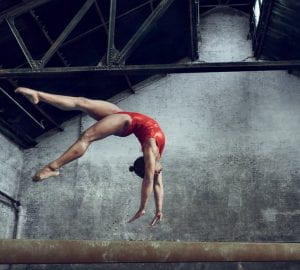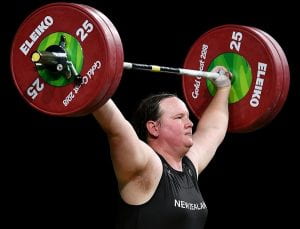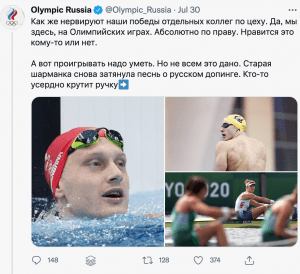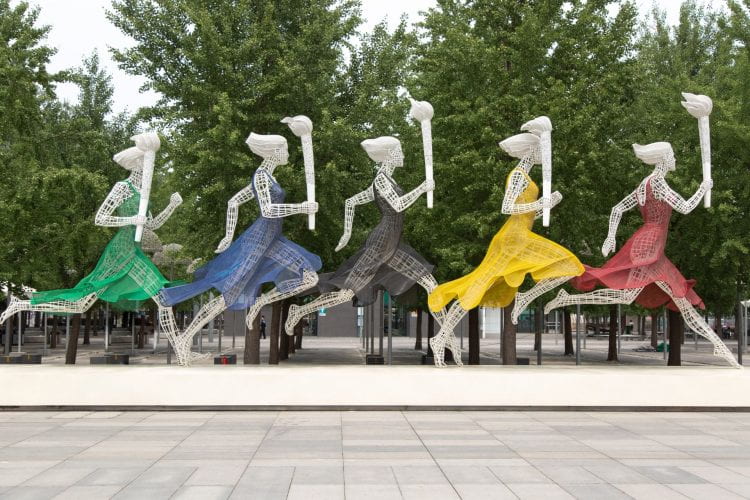Barshim
Biles
Hubbard
Tamberi
Tsimanouskaya.
Names to remember but moreover examples for our students to follow.
Qatar, United States, New Zealand, Italy, and Belarus. The athletes represent five different countries and five different events. Each individually could be envisaged as one of five olympic rings. Their stories, like the rings, intertwined and embodying hope. A heroism that supersedes athleticism, for they are harbingers of the dawning of a more humane future.
Olympic History
In 2012, the motto of the London Olympics was “Inspire a Generation.” In 2016 in Rio it was “A New World.” How befitting that this year in Tokyo the motto was “United by Emotion.” Originating in ancient Greece as many as 3,000 years ago, the games have not lost significance socially or culturally. Yet, there was a hiatus in the Olympics in 393AD under the reign of Emperor Theodosius as the ancient pagan Olympiad system was disbanded. Not until 1896 were they revived.
According to the International Olympic Committee, “Olympism is a philosophy of life, exalting and combining in a balanced whole the qualities of body, will and mind… Olympism seeks to create a way of life based on the joy found in effort, the educational value of good example and respect for universal fundamental ethical principles.” A lofty goal if we think back to the original games where all all athletes competed naked and corporal punishment awaited those “guilty” of even a false start on the track. This summer 200 nations convened in Tokyo for the XXXII Olympics, competing in 339 events, or 33 sports, over the course of 16-days. Much more than victory or failure, the Olympics are unable to be distilled to a single element. They are a spirit. One in which may bear witness to the good, the bad, and the ugly.
Generosity and Sharing Joy
Mutaz Barshim and Gianmarco Tamberi set an example of what is possible when we set ourselves aside, our maniacal egos, and consider that winning does not necessarily indicate someone must lose. The high-jumping duo have a history of competition but more importantly friendship. Each has battled hardships in their career and received support from the other. So, after both successfully cleared the 2.37m mark, a “marathon” two-hour attempt to outdo the other ensued. Until finally, an Olympic official offered them a jump off to see who would prevail. Time seemed to slow as Barshim questioned, “Can we have two golds?” Almost in perfect unison with the response, “It is possible,” Tamberi leapt into the arms of Barshim. Nicole Jeffery for World Athletics described how Tamberi then tore off on a hop and a skip across the track, before finishing up in a pile on the floor in floods of tears. The headlines would read, “High jumpers sharing gold medal dubbed ‘the greatest moment in Olympic history.” Watching the video leaves the viewer with warm feelings of just what is possible.


Borrowed from: “Mutaz Essa Barshim” by Doha StadiumPlus is licensed under CC BY 2.0
Foto di Giancarlo Colombo/A.G.Giancarlo Colombo
Biles Overcomes with Persistence
Simon Biles is so successful in gymnastics that we may even lose count of her eight National Championships, five World Championships, and 2016 Olympic All-Around Gold Medal. Yet, she is much more than her accomplishments. There may be apparent levity in the word “twisties.” Kind of like what you might think when you hear the words “twinkies” or “slinky.” Yet, the twisties are serious. When Biles’ 2016 Olympic teammate Laurie Hernandez was asked to explain them, she said “ twisties can set in when doing high level elements, typically on floor or vault, and it becomes difficult to compartmentalise the exact element a gymnast’s body is attempting. The rhythm is off, and your brain will like stutter step for half a second and that’s enough to throw off the whole skill.” So, for Biles to report having the twisties while on the world’s greatest athletic stage, without the comfort of falling into a foam pit, creates more than a sense of uneasiness. It was understandable how she would take herself out of four of the five individual events she qualified for. Yet, she could not be psyched out of the balance beam. Her courage to perform along with her extraordinary skill would result in winning the bronze. Biles shared, “It (the bronze) means more than all of the golds because I pushed through so much the last five years and the last week while I’ve even been here.”

Borrowed from: “simone-biles-gymnast-olympics-usa-team” by vfutscher is licensed under CC BY-NC 2.0
One Small Lift for a Woman, One Giant Leap for Humanity
It is a lot to snatch 133kg, a movement that requires pushing the weight overhead. Laurel Hubbard set the Oceania record in 202 for doing just this. Yet, what she has achieved usurps gravity. The focus of intense scrutiny, the 43-year-old never sought attention for being the first openly transgender woman to compete in the Olympics. The last time she even gave a major interview was in 2017. Yet, who could deny the journey taken to arrive at the XXXII Olympiad.
Born Gavin Hubbard in 1978, she stopped weightlifting in 2001 due to personal issues. In 2012 she began the transition as a transgender woman. Then in 2015 the International Olympic Committee (IOC) cleared the way for transgender athletes to compete in the Olympic women’s events. However, “the way” was not cleared completely in society. And still is not. Headlines reflect this; “Gender-Confused Male Athlete Takes Gold Medals in Women’s Weightlifting.” Yet, in a brief statement issued through the IOC, Hubbard remarked, “I see the Olympic Games as a global celebration of our hopes, ideals and values and I would like to thank the IOC for its commitment to making sport inclusive and accessible.”
Admitting that she was “overwhelmed,” Hubbard’s just showing up was a victory. D’Arcy Maine of ESPN recounted how as she made her way to the 120 kg weight in her first lift attempt someone in the crowd yelled, “Go, Laurel!” And another, “You got this, Laurel!” Unable to complete the first three lifts, Hubbard recognized the moment was much larger than herself. The contentiousness and debate leading all the way up to the event, were pleasantly replaced by what Maine reported as, “just applause and cheers inside the venue — and an audible buzz that has been nearly impossible to find elsewhere during these fanless Olympic Games.”

Borrowed from:
https://1.bp.blogspot.com/-Mes7N1QHCTg/XXalYtjS5aI/AAAAAAABanI/1LxOWRmoovYnWLiJb
Mz6HUKi8otxkRtgwCLcBGAs/s1600/New-Zealand-powerlifter-Laurel-Hubbard.jpg
The Courage to Speak Up
Belarus sprinter Krystsina Tsimanouskaya was scheduled by team officials for the women’s 4×400-meter relay. She had never competed in the event before. Tsimanouskaya posted criticism on social media for how the team was being managed, “with negligence.” Tsimanouskaya would not complete the event. Instead she would be told to pack her bags. Further, that she would face punishment.
Alexander Lukashenko, dubbed “Europe’s last dictator,” was banned by the IOC from attending the Tokyo games. IOC president Thomas Bach said, “we have come to the conclusion that it appears that the current leadership has not appropriately protected the Belarussian athletes from political discrimination.” However, not only athletes. In May a prominent blogger critical of Lukashenko was on a flight that was diverted, forced to land, arrested, and jailed. But even more recently, one week after Tsimanouskaya’s Instagram post, an activist by the name of Vitaly Shishov was found hanged in a park in Kiev.
The threat was real.
Instead of boarding the plane back to Belarus, Tsimanouskaya was provided police protection. According to the Economist, “The next day, Poland granted her and her family asylum. She claims that the call to send her back came not from the sports ministry but from “a higher level”.
U.S. Secretary of State Antony J. Blinken summed it up best by, “denouncing Belarusian officials’ attempt to force Tsimanouskaya to return to Belarus for exercising free speech as ‘another act of transnational repression.’” Blinken would then ironically utilize a social media platform to express his views. Much like Tsimanouskaya did. “Such actions violate the Olympic spirit, are an affront to basic rights, and cannot be tolerated.”

Borrowed from: https://uk.anygator.com/article/belarusian-olympic-sprinter-%E2%80%98forced-to-return-home%E2%80%99-after-publicly-criticising-national-coaches-in-alleged-kidnappin__14862986
Roses Also Have Some Thorns
Vitalina Batsarashkina’s gold medal in the women’s 10 metre air pistol, an event I did not know even existed, triggered even more learning. What country was ROC? After being lost in a rabbit hole of sorts, I came out with one big understanding. There was a gaping loophole. ROC stands for Russian Olympic Committee, a team of 333 Russian athletes. Though banned as a country, Russian athletes still were able to compete in Tokyo. Just not under the name, flag, or anthem of Russia. However, the country’s colors for uniforms were permissible. “You don’t really need to have a strong imagination. In those uniforms that you saw, our national flag can be seen really really obviously,” Russian Olympic Committee president Stanislav Pozdnyakov said.
ROC came about because in 2019, Russia was banned from international competition for four years. World Anti-Doping Agency (WADA) President Witold Banka released in a statement, “The panel has clearly upheld our findings that the Russian authorities brazenly and illegally manipulated the Moscow Laboratory data in an effort to cover up an institutionalized doping scheme.” The use of banned athletic performance-enhancing drugs, such as anabolic steroids. The New York Times called it “one of the most elaborate — and successful — doping ploys in sports history.” Even an Oscar-winning documentary, Icarus, of the doping scandal hit Netflix. Yet, even after the facts were revealed and the verdict conclusive, the Court of Arbitration for Sport would later reduce the penalty to just two years. Furthermore, they would plant the seeds for ROC, allowing Russian athletes to compete under a neutral flag if they proved they had no link to the doping scheme.
Zooming out, what did this add to the rancor of many athletes? Lily King, gold medal and world record breaststroke swimmer, was quoted as saying, “I’m sure there were a lot of people competing this week from certain countries who probably shouldn’t have been here.” Certain countries? Hint. Hint. Cough. Cough. No prominent Russian swimmers were left home from the Games and Ryan Murphy, silver medalist in the 200 backstroke, did not mince words after coming in second. “At the end of the day, I do believe there’s doping in swimming. That is what it is.” Again, a bit of an implication as the gold went to a swimmer from none other than, team ROC. An abbreviated version of a tweet on ROC’s page rebutted, “…Through the mouths of athletes offended by defeats. We will not console you. Forgive us those who are weaker. God is their judge. And for us – an assistant.”

An Explanation that Empowers
Some may say Tokyo 2020 (or is it 2021?) was a flop. That the pandemic wreaked havoc on the games. The spectator less event a nadir to the sporting world and that even the host country could not get behind the Olympiad. Yet, all over the walls and in the cracks is evidence of success. The sharing of a gold medal, overcoming fear and pressure, courage and the freedom of speech, and inclusivity. Each of these in addition to the spirit of the Olympics, mutual understanding with a spirit of friendship, solidarity and fair play. Ubiquitous is whatever we look for, stories of encouragement or burden. Hopefully, the heroism and humanity of Barshim, Biles, Hubbard, Tamberi, and Tsimanouskaya is what we will choose to remember.
####################

